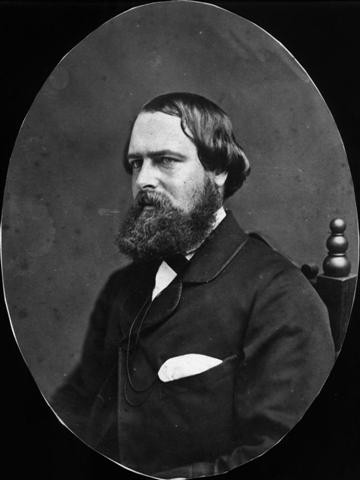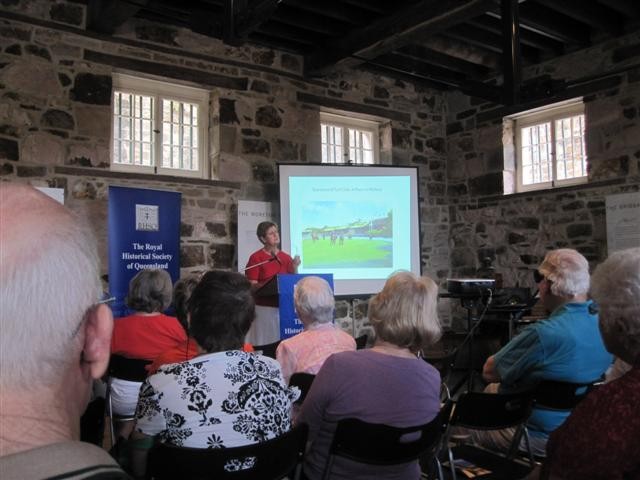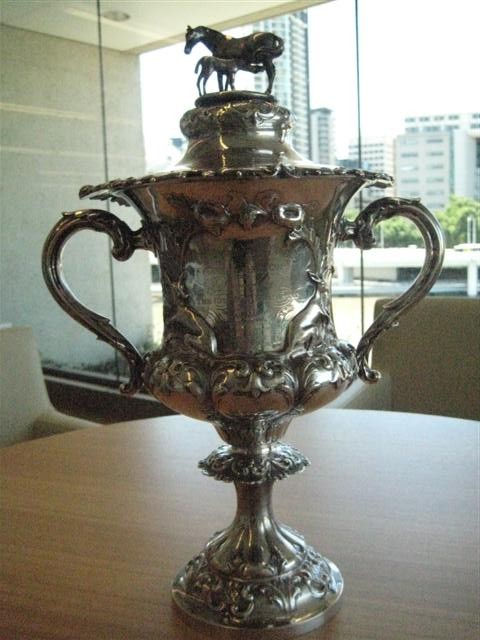Royal Historical Society of Queensland Open Day – From a John Oxley Library Perspective by Dianne Byrne
By JOL Admin | 19 November 2010
Historic items in the John Oxley Library’s collection were a focus for discussion in talks given at the Royal Historical Society of Queensland’s open day at the Commissariat Store, Brisbane on Saturday 13 November. Helen Coughlan, author of the recently published Queensland Turf Club: A Place in history (Boolarong Press) and historian David Gibson provided highly individual perspectives on the life and career of Robert George Wyndham Herbert (1831-1905), one of Queensland’s most prominent early public figures.

Robert George Wyndham Herbert. John Oxley Library Image Number 15693.
Robert Herbert, aristocrat, lawyer and politician did much to shape the early aspect of the colony and is commemorated today in place names throughout the state, including the town of Herberton, the electorate of Herbert, and the Herbert
River. He came to Queensland initially as private secretary to Governor Sir George Bowen and in December 1859 was commissioned as colonial secretary. Following his election to the Legislative Assembly, he was confirmed in office as
Queensland’s first (and youngest) premier.
Herbert was a dedicated public servant who negotiated the factions of Queensland politics with a reserved manner and conservative disposition. It is said that “he never attempted oratory and never gave anything away.”
Both of the Royal Historical Society’s speakers offered insights into his complex personality, attempting to uncover the private man through his surviving letters to his family back home in England and his involvement in the squatter’s favourite pastime of horse racing.

Helen Coughlan spoke of Herbert’s close involvement with the establishment of the Queensland Turf Club, both as one of the original trustees and as the owner of the winner of the race for gentlemen riders at the first meeting at Eagle Farm racecourse in June 1865.
Herbert’s horse “Grasshopper” ridden by his cousin, gentleman jockey, Algernon Lempriere in Herbert’s colours of blue and scarlet, outstripped the field to win the magnificent silver “Corinthian Cup”, decorated with kangaroos and chased sporting figures.

This cup, long the property of the Queensland Turf Club, was recently presented to the John Oxley Library by the Chairman and Trustees of the Brisbane Racing Club. This very important and generous gift is now available for viewing at the library on request, and complements a variety of other items relating to R.G.W. Herbert also held within the John Oxley Library’s heritage collections. These include the silk robes worn by Herbert as Chancellor of the Order of St Michael and St George, and one of his original letter books dating from the 1860s in which he kept copies of his personal letters to his mother and sister.
Herbert’s letters were a starting point for David Gibson’s talk, which looked at the differences between the public and private man, and the quiet life which Herbert established at “Herston”, his Brisbane residence, far removed from colonial society. Herbert’s friendship with John Bramston, Clerk of the Executive Council and later Attorney General, has been the subject of some discussion amongst historians in recent years, and in this regard, David Gibson offered a different perspective – presenting Herbert as the product of a time which placed strong emphasis on patronage, connections and close personal “romantic friendships”.
Comments
Your email address will not be published.
We welcome relevant, respectful comments.